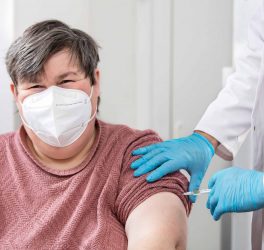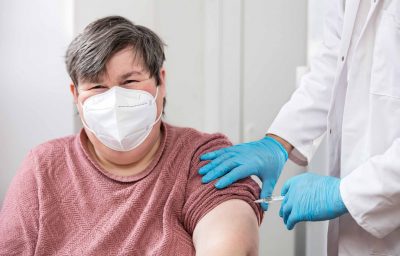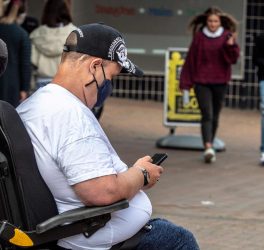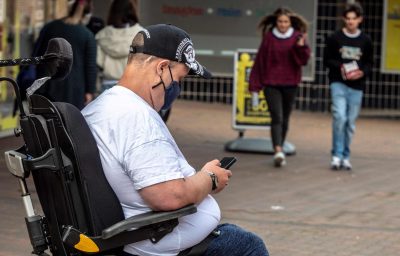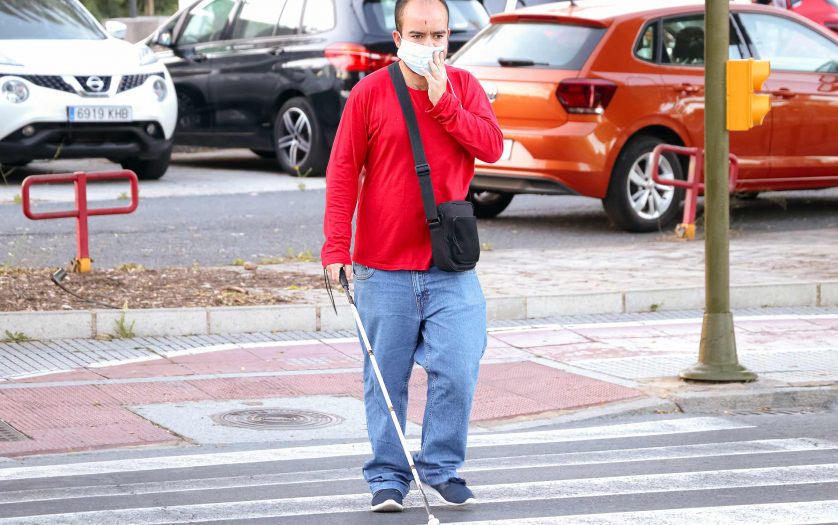
AHRC New York City is co-hosting a free symposium in partnership with Pace University and Georgetown University’s National Center for Cultural Competence to inform policy about the disparate impacts that the COVID-19 pandemic has had on people with disabilities and how race, ethnicity, gender identity, and cultural biases affect their quality of life and health outcomes.
Eliminating Compounded Disparities for People with Disabilities in a Year of COVID-19 will be held virtually on May 14. This half-day symposium will take an in-depth look at the lived experiences and compounded disparities of people with disabilities, public policies affecting them, and many of the lessons learned from the pandemic.
With participation from the NYC Mayor’s Office for People with Disabilities, NYC Department of Social Services, and Trinity Church Wall Street, contributors include people with disabilities such as leading disability rights advocate Judy Heumann, social/racial justice and health-equity advocate Daniel Dawes, Executive Director of the Satcher Health Leadership Institute at Morehouse School of Medicine, members of the Biden-Harris COVID-19 Health Equity Task Force, the Mayor’s Office for People with Disabilities; NYC Department of Health and New York Law, among many others. U.S. Sen. Kirsten Gillibrand of New Yorkwill deliver remarks.
“As a physician providing care on the frontlines during the height of the pandemic, it was clear that health inequities would not be solved by health professionals and academics alone,” said Dr. Sheryl White-Scott, Senior Medical Advisor at AHRC New York City and a Board of Director of the Human Services Research Institute. “We need to collaborate with communities with lived experiences. Substantial and sustainable change will be impossible without incorporating disability, race, ethnicity, gender, culture and political determinants into our collective action plan. In order to act differently, we must first think differently.”
The goal of the symposium is to foster a deeper discussion about the challenges facing people with disabilities and identify needed changes to policy, service delivery, training, and other key considerations.

